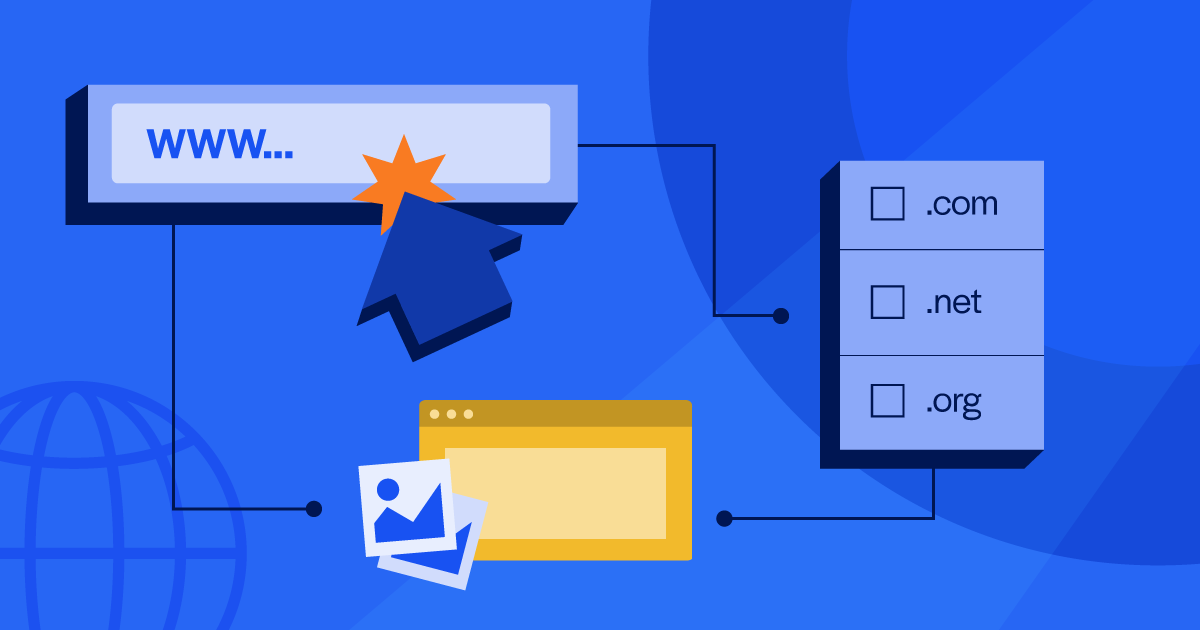Choosing a domain registrar is just one of many decisions that businesses have to make when creating a new website. And it’s not like the decision is easy. It feels like there is an endless number of domain registrars, and each registrar offers their own particular features. Just because a domain registrar is the biggest and most popular doesn’t mean it’s the best choice for your brand. On the other hand, you want to do your research to make sure a smaller domain registrar isn’t going to scam you.
We don’t want to lay out a comparison between existing domain registrars, but to instead provide important points to consider when choosing a registrar for your business’s domain name. If the answers to these questions can’t be found on the registrar’s website and you can’t find a way get in touch with their customer service team, reconsider using that registrar!
What is a Domain Registrar?
A domain registrar is a website that allows you to register unique domain names for websites. In order to sell domain names, each registrar has to be accredited by ICANN, the Internet Corporation for Assigned Names and Numbers, who manages all of the internet’s websites.
Ideally, a domain registrar helps you manage your domains, controls how much of your personal information is publicly available, and secures your domain against scams and threats. All domain registrars have their own strengths and weaknesses, so make sure you’ve clearly defined your goals and budget before jumping in.
How is their customer support?
Odds are that you will, at some point, have a question that only another knowledgeable human can answer. Do a quick lap around their site to see what support channels the domain registrar offers. Do they list a phone number or an email address? Will you be able to speak with a human if you call them? Do they have live chat options available 24/7?
Also, opt for registrars that focus on stellar customer support instead of annoying marketing emails that clutter your inbox.
What are their domain expiration procedures?
Domains are not registered permanently and are renewed for specific chunks of time, usually one year. Check out the registrar’s domain expiration policies and make sure you understand them. In particular, pay attention to these two topics:
1. Auto-Renewal Services: Most domain registrars do offer to automatically renew your registration each year, but you likely need to opt in to activate it at purchase.
2. Domain Expiration Grace Periods: Some registrars will lock your domain once it expires for a short period so that no one else can buy it out from under you. Because, we get it: life gets in the way, credit cards expire, but that doesn’t mean you should lose your domain.
Do they offer the TLD you want?
The third thing to know is whether or not a domain registrar offers the top-level domain (or TLD) that you want. Almost every domain registrar will offer the biggies like .com, .net, and .org. But there are registrars that will focus more on providing good service for a few TLDs, while other larger registrars offer a broader range of TLDs, from .guru, to .shop, to .attorney.
How simple is their domain transfer process?
Unfortunately, some domain registrars make it difficult to transfer your domain from their services to another registrar’s platform. Make sure you understand what you would need to do if you ever wanted to transfer your domain name away from your current registrar, and see if you can find out whether it’s free.
Are they upfront about their prices?
When choosing a domain registrar, you’ll notice that different registrars charge different (sometimes wildly different) prices for domains and services. Be aware how much your domain registrar tends to charge for the following products and services:
• Initial domain registration costs and renewal rates: You will see a lot of variation here. Be aware that some registrars have low introductory registration fees, but higher annual renewal rates. And remember that these fees are different for each TLD.
• Transfer fees: It’s possible to transfer a domain name from one registrar to another. Your domain registrar would ideally have no transfer fee, or would at least charge very little.
• Hidden charges: Don’t forget to read the fine print about what services are bundled in with your registration and what they will cost. If they spring a ton of fees on you right before you hit that purchase button, rethink using that registrar.
Is WHOIS Privacy included?
When you sign up for a domain name, you are required to give your personal information to the registrar. That information is usually passed on to the WHOIS database, an official list of contact information for every website. Find out if your domain registrar protects that information from public searches, instead replacing it with their own. This service is known as WHOIS privacy, and should be included at no extra charge. If someone needs to get in touch with you, your domain registrar can relay the message.
Additionally, your registrar should provide you with a private or “proxy” email address that you can share with the broader public. This keeps your own personal email address private and helps you maintain some better work-life balance.
How are they keeping your domain secure?
Domain hacking is a serious security concern. When someone hijacks your domain, they are able to get inside your account, change your registration information, and either take control of the site or sell it to someone else. They may even hold it hostage until you agree to pay an inflated ransom. Many registrars offer safeguards against this happening, like domain locking and two-factor authentication.
Every business has different needs when it comes to choosing a domain registrar. At Domain Registry, we strive to provide individually-catered customer service and domains management, helping you easily find and maintain your ideal domain.




